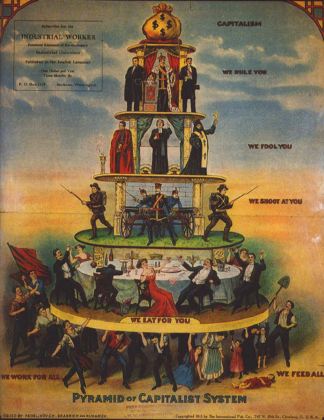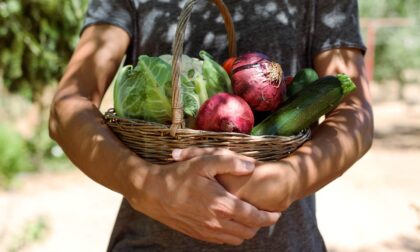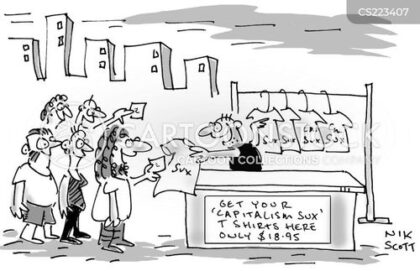
Description
Welcome to Social Economy and Sustainable Futures
Weekly Lessons
Course Information
Day/Time: Thursday 5:45 – 8:15 PM.
Office Hours: Thursday 4:30 – 5:30 and 8:15 – 9:15 PM.
Office Location: H 558
Classroom: H 544 SGW
Territorial Acknowledgement
I acknowledge that Concordia University is located on unceded Indigenous lands. The Kanien’kehá:ka Nation is recognized as the custodians of the lands and waters on which we gather today. Tiohtiá:ke/Montreal is historically known as a gathering place for many First Nations. Today, it is home to a diverse population of Indigenous and other peoples. We respect the continued connections with the past, present and future in our ongoing relationships with Indigenous and other peoples within the Montreal community. (Indigenous Directions Leadership Group, Feb. 16, 2017)
Course Description from Undergraduate Calendar
This course introduces a number of emerging alternative models of social economy that envision sustainable global futures in contrast to the current model of neoliberal globalization.
Learning Outcomes
By the end of the course, students should be able to…
- Use the tools and language of the social solidarity economy to explain contemporary environmental and social issues as well as solutions.
- Perform action research to incorporate ontological approaches in creating new economic possibilities.
- Recount the history of the social solidarity economy in Quebec and Canada.
- Situate the social solidarity economy into the larger field of political economy.
- Identify planetary boundaries and ecological crises.
- Comprehend degrowth economic perspectives.
- Understand how to re-embed economies into society and the biosphere.
- Understand how to start a social solidarity enterprise.
- Perform financial assessments of social solidarity enterprises.
- Create a business plan for a social solidarity enterprise.
- Locate potential funding agencies to begin a social solidarity enterprise.
- Understand strengths and limitations of social solidarity economies.
- Differentiate between different models of social enterprises and collective labour.
- Develop a critical understanding of a plurality of economic approaches in relation to environmental and social problems.
- Apply diverse economic approaches to imagine and create ethical economic conditions.
- Evaluate diverse forms of labour, finances, transactions, property and enterprises in the social solidarity economy.
- Identify multiple, often conflicting, forms of value and how the social solidarity economy can create positive community ‘values’.
- Map diverse economies.
- Describe case-studies about successful social solidarity economies.
- Move beyond understandings of weak sustainability towards transformative approaches.
- Understand social justice and decolonial perspectives in the social solidarity economy.
- Take anti-capitalist perspectives in understanding the social solidarity economy.
Instructional Method
This course will be given in person and run as a seminar. Each class will begin with a short lecture and discussion led by Erik Chevrier, Ph.D. He will introduce themes, provide additional examples and/or offer critical perspectives related to the weekly topics but not covered in the readings. From September 28th until October 26th, students will participate in one student panel, by presenting a chapter for 10-minutes and participating in a group discussion. Students will also perform two group projects, one as a large class, and one as a small breakout group. All students are expected to read the required texts before class and engage with each other through interactive activities and critical discussions.
Required Course Materials
Students are required to complete the weekly readings before coming to class. There is no specific textbook for the course. All of the readings are made available at the Concordia library in e-version. The links are provided in this syllabus.
Evaluation
Name of Assignment | Due Date | % of final grade |
Participation | Ongoing | 10 |
Student Panel Presentation Slides and Reflection | Varies | 30 |
Mapping Project Completion and Reflection | November 9 | 30 |
Practicing in the Social Solidarity Economy Project Completion and Reflection | December 5 | 30 |
Assignments
Participation: The participation grade is based on attendance, involvement in discussions, participation in classroom activities and supplemental tasks. Every class, students must demonstrate that they have completed the course readings.
Student Panel Discussion: From September 28th, until October 26th students will participate in a panel discussion on one of four topics, (1) diverse economies, (2) types of social solidarity economy actors, (3) creating positive social and environment community value, and (4) critical issues pertaining to social solidarity economy. Each student will lead a 10-minute presentation and participate in a discussion with the other panellists. Students will be evaluated on their ability to identify the central claim(s) or thesis(es) of the texts and articulate it (them) in their own words, synthesize the readings in a clear, informative manner, provide examples that support or contradict the arguments put forth in the chapter, and participate in a panel discussion with the other presenters. Students must also submit a paper copy of their presentation and a short reflection of the assignment.
Mapping the Campus-Community Food Groups at Concordia University: Students will participate in a collective project to map the campus-community food groups at Concordia University. Students will interview food organizations that produce, process, and distribute food, as well as provide support and manage food waste. They will identify the practices of each organization and create two maps: an organizational map of the campus-community food system and a needs and asset map of each organization. Students will also create a write up for each food group to update the Concordia Food Groups Archive. Students will be evaluated based on the depth of their involvement with the project, their deliverables, clearly reporting their contribution to the project, an oral presentation summarizing their role in the project, and linking the project to the course material. Students must submit a short reflection about their participation in the project.
Practicing in the Social Solidarity Economy: Students choose one of two projects (see below). In both projects, students will submit a group project report and individual reflection.
1 – Students may start a social enterprise (real or fictitious) of their own. In creating a social enterprise, students must come up with a vision, values, structure, practices (governance, finance, labour) value proposition, critical reflection and SWOT analysis.
2 – Students may work with a social enterprise that already exists. In working with a social enterprise, students must write an auto-ethnography about the organization reflecting on the organization’s governance, labour, economic practices, value production, needs and assets evaluation, and/or finance.
Grade to Letter Equivalencies
A+ | 95 – 100 | B+ | 80 – 84.9 | C+ | 67 – 69.9 | D+ | 57 – 59.9 | F | 0 – 49 |
A | 90 – 94.9 | B | 75 – 79.9 | C | 63 – 66.9 | D | 53 – 56.9 | NR | No report |
A- | 85 – 89.9 | B- | 70 – 74.9 | C- | 60 – 62.9 | D- | 50 – 52.9 |
|
|
Extraordinary Circumstances
In the event of extraordinary circumstances and pursuant to the Academic Regulations, the University may modify the delivery, content, structure, forum, location and/or evaluation scheme. In the event of such extraordinary circumstances, students will be informed of the changes.
Class Cancellation
Classes are officially considered cancelled if an instructor is 15 minutes late for a 50-minute class, 20 minutes late for a 75-minute class, or 30 minutes late for longer classes.
Intellectual Property
Content belonging to instructors shared in online courses, including, but not limited to, online lectures, course notes, and video recordings of classes remain the intellectual property of the faculty member. It may not be distributed, published, or broadcast, in whole or in part, without the express permission of the faculty member. Students are also forbidden to use their own means of recording any elements of an online class or lecture without express permission of the instructor. Any unauthorized sharing of course content may constitute a breach of the Academic Code of Conduct and/or the Code of Rights and Responsibilities. As specified in the Policy on Intellectual Property, the University does not claim any ownership of or interest in any student IP. All university members retain copyright over their work.
Behaviour
All individuals participating in courses are expected to be professional and constructive throughout the course, including in their communications. Concordia students are subject to the Code of Rights and Responsibilities which applies both when students are physically and virtually engaged in any University activity, including classes, seminars, meetings, etc. Students engaged in University activities must respect this Code when engaging with any members of the Concordia community, including faculty, staff, and students, whether such interactions are verbal or in writing, face to face or online/virtual. Failing to comply with the Code may result in charges and sanctions, as outlined in the Code.
Late Assignment and Submission Policy
Unless you are given permission in advance, late assignments will not be accepted without adequate documentation of medical or personal emergencies. All assignments must be submitted in hard copy on the due date. Assignments that are received electronically will have 30% deducted from the grade of the assignment.
Academic Integrity
Academic integrity means that every student must be honest and accurate in their work. The Academic Code of Conduct includes rules and regulations students must follow. Unacceptable practices include the following
- Copy from ANYWHERE without saying from where it came.
- Omit quotation marks for direct quotations.
- Let another student copy your work and then submit it as his/her own.
- Hand in the same assignment in more than one class without permission.
- Have unauthorized material in an exam, such as cheat sheets, or crib notes. YOU DON’T HAVE TO BE CAUGHT USING THEM – JUST HAVING THEM WILL GET YOU INTO TROUBLE!
- Copy from someone else’s exam.
- Communicate with another student during an exam by talking or using some form of signals.
- Add or remove pages from an examination booklet or take the booklet out of an exam room.
- Get hold of or steal an exam or assignment answers or questions.
- Write a test or exam for someone else or have someone write it for you.
- Hand in false documents such as medical notes, transcript or record.
- Falsify data or research results.
PLAGIARISM: The most common offense under the Academic Code of Conduct (see link below) is plagiarism, which the Code defines as “the presentation of the work of another person as one’s own or without proper acknowledgement.”
This could be material copied word for word from books, journals, internet sites, professor’s course notes, etc. It could be material that is paraphrased but closely resembles the original source. It could be the work of a fellow student, such as an answer on a quiz, data for a lab report, or a paper or assignment completed by another student. It could be a paper purchased through one of the many available sources. Plagiarism does not refer to words alone. It can also refer to copying images, graphs, tables, and ideas. Plagiarism is not limited to written work. It also applies to oral presentations, computer assignments and artistic works. Finally, if you translate the work of another person into French or English and do not cite the source, this is also plagiarism. In simple words: DO NOT COPY, PARAPHRASE OR TRANSLATE ANYTHING FROM ANYWHERE WITHOUT SAYING FROM WHERE YOU OBTAINED IT!
Take care to inform yourself of the rules, regulations and expectations for academic integrity.




